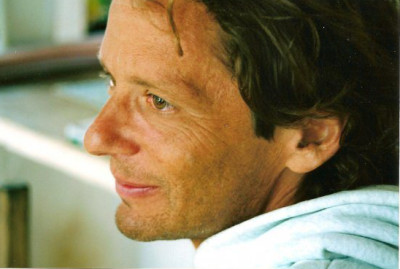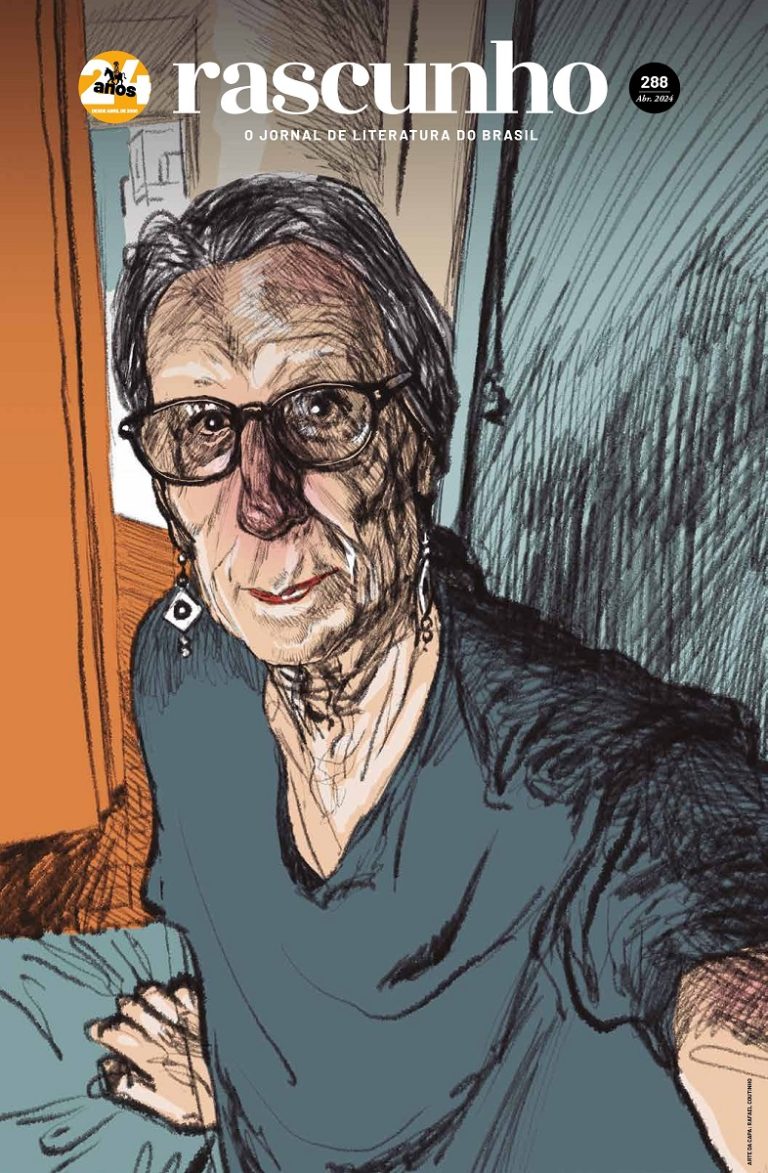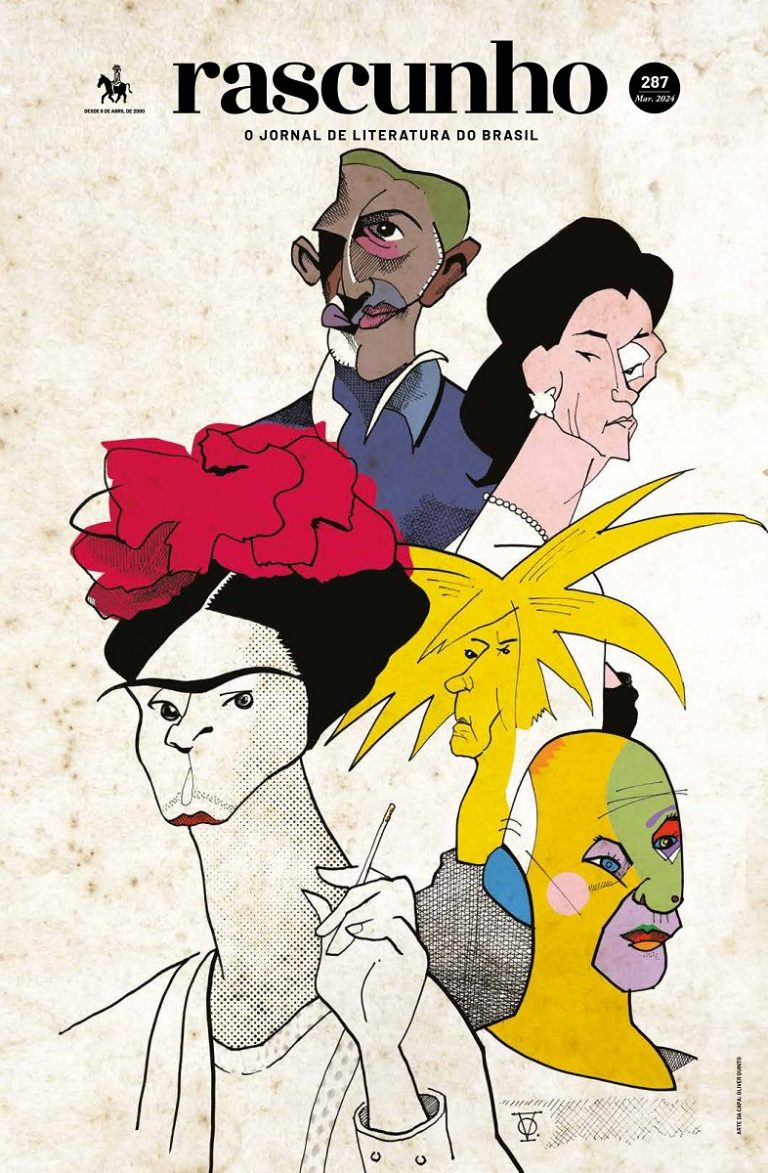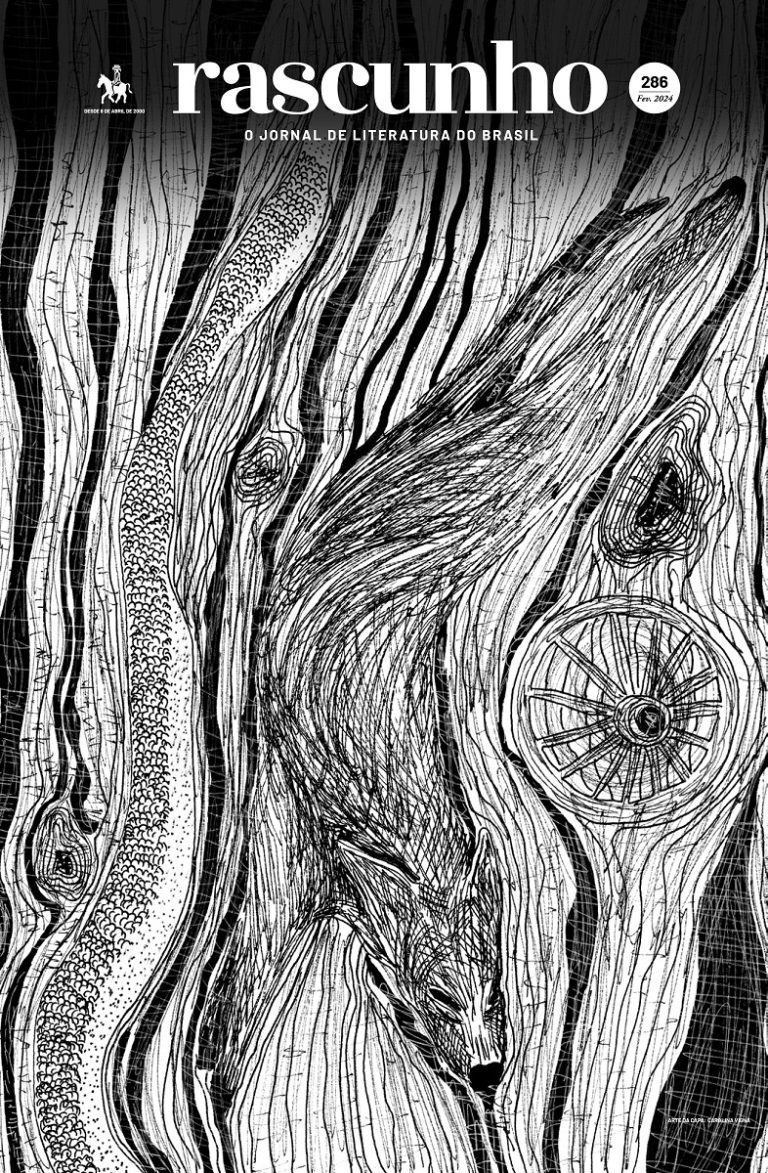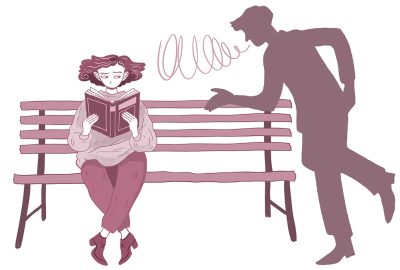Tradução e seleção: André Caramuru Aubert
Cortège
[Prologue]
If the sea could dream, and if the sea
were dreaming now, the dream
would be the usual one: Of the Flesh.
The letter written in the dream would go
something like: Forgive me — love, Blue.
Cortejo
[Prólogo]
Se o mar pudesse sonhar, e se o mar
estivesse sonhando agora, o sonho
seria aquele comum: Sobre a Carne.
A carta escrita no sonho diria
algo como: Me perdoe — com amor, Blue.
……………………..
Life lessons from art
For Evy
Leave every room its share
of dark corners,
its shelves of relics,
or replicas of same,
to cast additional shadow;
always, the flesh — be it
the girl-student’s lifted
arm, the bit of neck escaping
from the meister’s lace cravat —
should be the primary source of light:
if there are windows,
they are only to show some emblem
of the world you have chosen
largely to ignore, a plow, or a ship
with sails folded, griffins rising where
the eye of the cartographer fails,
skies doubling as the pasty brow of God.
As appropriate, pain yourself
into the grain of a half-eaten slice of orange,
the cameo holding the infant’s
baptismal gown together,
include your reflection
in the doorknob, the porcelain
sconce, the tea-service the newly
married couple has already forgotten,
anywhere they’ll think to look last.
With these exceptions, leave the bulk
of your work unsigned.
Lições de vida pela arte
Para Evy
Em cada aposento deixe sobrar
um canto escuro,
de prateleiras com relíquias
ou réplicas,
para fazer mais sombra;
sempre, a carne — seja ela
o braço erguido da estudante,
o naco de pescoço à mostra
do laço da gravata do mestre —
deveria ser a fonte primordial de luz:
se há janelas,
elas servem apenas para exibir insígnias
do mundo que você escolheu
para em parte ignorar, um arado, ou um barco
com as velas dobradas, grifos surgindo onde
falham os olhos do cartógrafo,
os céus dobrando como a pastosa fronte de Deus.
Como apropriado, cause dor a si mesmo
com o caroço de uma fatia de laranja meio comida,
o camafeu prendendo a
roupa batismal da criança,
inclua seu reflexo
na maçaneta, na arandela
de porcelana, no conjunto de chá que
os recém-casados já se trataram de esquecer,
em qualquer lugar que eles não vão procurar.
Salvo por essas exceções, deixe o grosso
de sua obra por assinar.
……………………..
Leda, after the swan
Perhaps,
in the exaggerated grace
of his weight
settling,
the wings
raised, held in
strike-or-embrace
position,
I recognized
something more
than swan, I can’t say.
There was just
this barely defined
shoulder, whose feathers
came away in my hands,
and the bit of world
left beyond it, coming down
to the heat-crippled field,
ravens the precise color of
sorrow in good light, neither
black nor blue, like fallen
stitches upon it,
and the hour forever,
it seemed, half-stepping
its way elsewhere —
then
everything, I
remember, began
happening more quickly.
Leda, depois do cisne
Talvez,
na exagerada graça
de seu peso
se ajustando,
as asas
abertas, mantidas
em posição de
ataque-ou-abrace,
eu reconheci
algo mais
que um cisne, não sei dizer.
Havia apenas
esses mal definidos
ombros, cujas penas
vieram parar em minhas mãos,
e o pedaço de mundo
deixado para trás, caindo
no campo aleijado pelo calor,
corvos com cor exata da
melancolia sob a luz, sem ser
pretos nem azuis, como
pontos sobre ele caídos,
e a hora eterna,
parecia, meio-escalando
seu caminho para outro lugar —
e então
tudo, eu
me lembro, começou
a acontecer mais rápido.
……………………..
Fra Lippo Lippi and the vision of Henley
If, in depicting the angels, I cannot
avoid something, as well, of what
the river that day cast before me,
the musculature of the rower’s arms,
together streaking the air of those
otherwise empty, unremarkable hours;
if only now, after the mechanical
drown recover drown of the oars in
their hands, do I understand wings
and the scaled-down pattern for
suffering that every wing, surely,
is lined with, do, Monsignor,
forgive me. By your grace, again,
this is what happened: at first,
only the heat, the cool water…
Frei Lippo Lippi e a visão de Henley
Se, ao descrever os anjos, eu não tenha,
também, como evitar algo que o rio,
que naquele dia, pôs diante de mim,
a musculatura dos braços do remador,
riscando juntos o ar daquelas horas
fora isso vazias e prosaicas;
se pelo menos agora, depois do mecânico
submerge ergue submerge dos remos em
suas mãos, eu compreendo as asas
e o reduzido padrão para o
sofrimento com o qual cada asa,
certamente está, Monsenhor, alinhada,
me perdoe. Por sua mercê, novamente,
o que ocorreu foi isso: primeiro,
apenas o calor, a água fresca…
……………………..
Radiance versus Ordinary Light
Meanwhile the sea moves uneasily, like a man who
suspects what the room reels with as he rises into it
is violation — his own: he touches the bruises at each
shoulder and, on his chest,
the larger bruise, star-shaped,
a flawed star, or hand, though he remembers no hands,
has tried — can’t remember…
That kind of rhythm to it,
even to the roughest surf there’s a rhythm findable,
which is why we keep coming here, to find it, or that’s
what we say. We dive in and, as usual,
the swimming
feels like that swimming the mind does in the wake
of transgression, how the instinct to panic at first
slackens that much more quickly, if you don’t
look back. Regret,
like pity, changes nothing really, we
say to ourselves and, less often, to each other, each time
swimming a bit farther,
leaving the shore the way
the water — in its own watered, of course, version
of semaphore — keeps leaving the subject out, flashing
Why should it matter now and Why,
why shouldn’t it,
as the waves beat harder, hard against us, until that’s
how we like it, I’ll break your heart, break mine.
Resplendor versus luz comum
Enquanto isso, o mar se move, inquieto, como um homem
suspeitando que o cambalear na sala, enquanto ele vai até lá,
é violação — a sua própria: ele toca as feridas em cada
ombro, no seu peito,
a maior ferida, com formato de estrela,
uma estrela torta, ou mão, ainda que não se lembre de mãos,
ele tenta — mas não se lembra…
Aquele tipo de ritmo naquilo,
mesmo quando as ondas quebram mais fortes dá para identificar um ritmo,
que é o motivo pelo qual seguimos vindo aqui, para encontrá-lo, pelo menos
é o que dizemos. Nós mergulhamos e, como sempre,
a natação
se parece com a natação feita pela mente quando vai
transgredir, como o instinto do pânico logo
diminui, muito mais rapidamente, se você não
olha para trás. O arrependimento,
como a piedade, não muda nada, nós
dizemos a nós mesmos e, com menos frequência, um ao outro, cada vez
nadando um pouco mais longe,
deixando a costa do jeito
que a água — na sua particular versão aquática, é claro,
de um semáforo — fica deixando de fora o sujeito, piscando
Por que isso importa agora e Por que,
por que não importaria,
enquanto as ondas batem mais forte, mais forte em nós, até que
passamos a gostar, eu vou partir seu coração, partir o meu.



